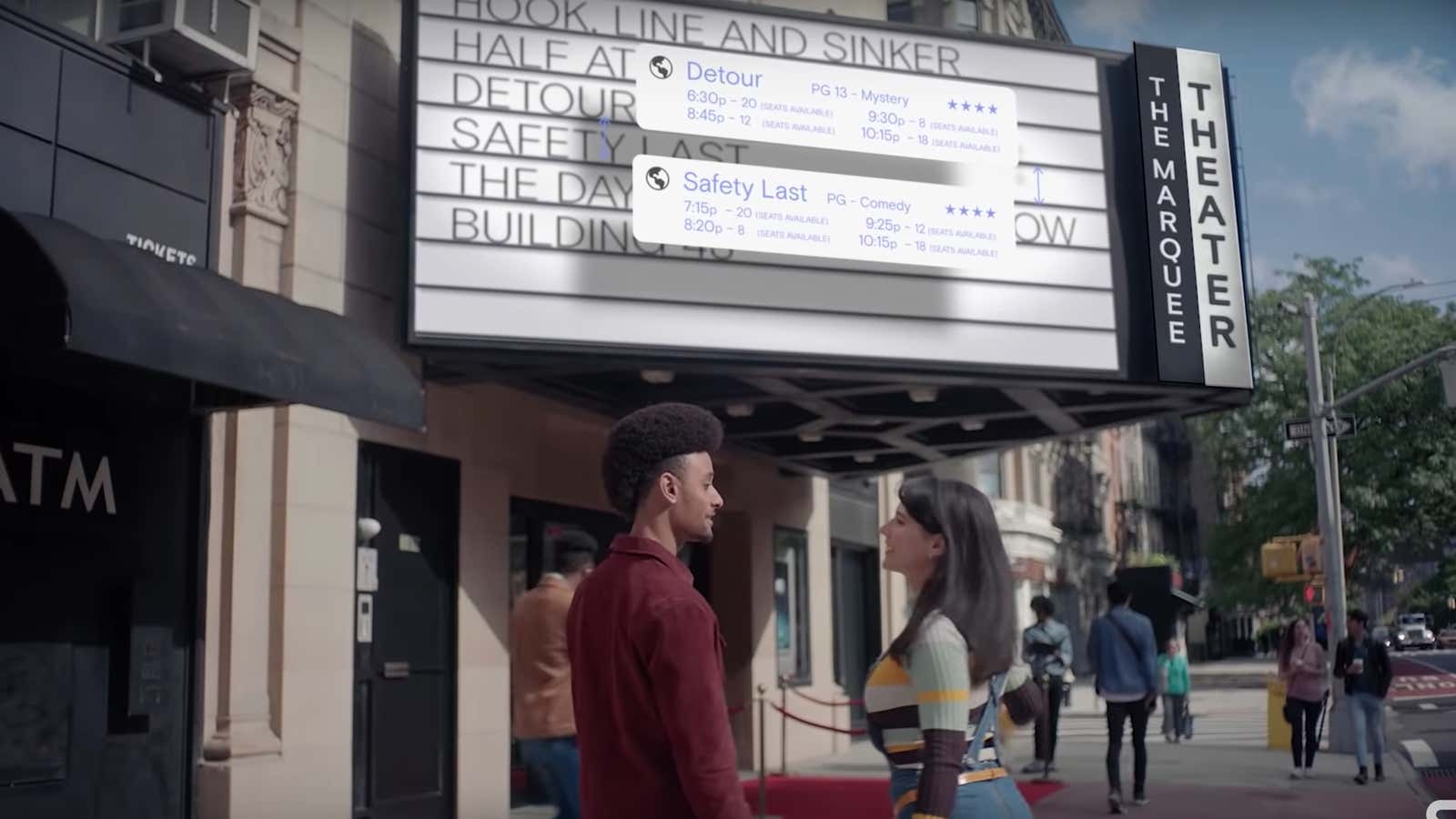Facebook is working on bringing us into a world we’ve only known from science fiction.
On Wednesday (Sept. 25), the company laid out the vision for the work of its Facebook Reality Labs division (FRL), which is working on virtual- and augmented-reality products. At the center of this effort are “lightweight, all-day wearable” Augmented Reality (AR) glasses that, the company says will let you teleport yourself anywhere in the world.
The company is constructing 3D “LiveMaps,” what it’s calling a “shared virtual map,” of the real world. The AR glasses will be able to tap into the maps, enabling a digital ”teleportation” to another place. Instead of your actual self going to a location of your choosing, it will be a hyper-realistic avatar, that the company is already working on (not the not the silly leg-less Bitmojis that occupy Facebook’s existing VR world, but scarily accurate holograms.)
The maps will be able to search and share information about the physical world in real time. Here’s how the company describes it:
Imagine getting showtimes just by looking at a movie theater’s marquee, or calendar reminders from your personal assistant who can also tell when you’ve left behind something you’ll need.
But it’s perhaps best illustrated by video:
This technology is still far in the future, but for now, Facebook is working on developing an approximation of teleporting in Virtual Reality (VR), where you can “sit down” in a shared space with the cartoon avatar of another person by using the company’s Oculus goggles. But in the future, it wants to bring these capabilities to wearable AR technology. On the same day, however, Amazon announced its own smart glasses, which embed its Alexa personal assistant into the frames.
All of this requires Facebook gobbling up a massive amount of data about users and the world around them (the maps will be built on crowd-sourced information from smart devices), so the company stipulates in its post that it will “continue this work with privacy in mind, engaging global experts for their feedback as we think through best practices and how people can retain control of their information.”
